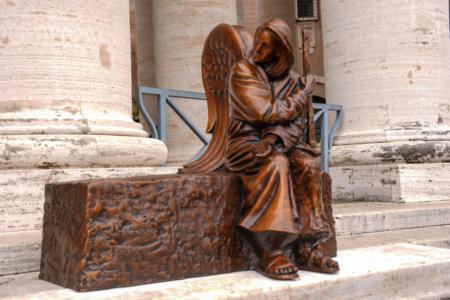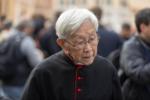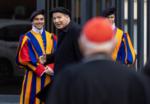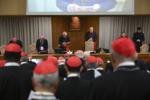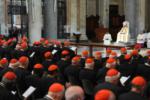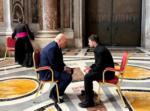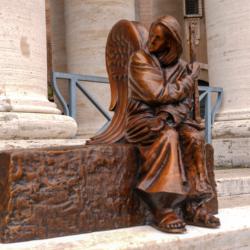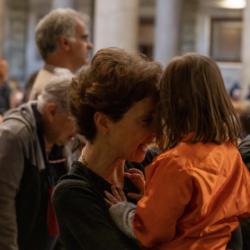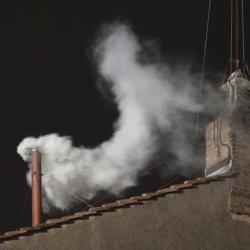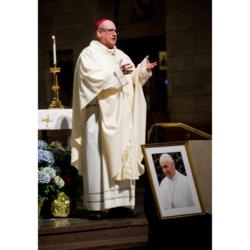Looking to Sydney
The 500 or so Boston pilgrims who attended World Youth Day in Cologne, Germany are back home. For many, that journey will be a life-changing experience. They experienced difficulties — miles of walking, damp weather, jammed public transportation, and more than a few pilgrims shared their bedrolls with the field mice of Marienfeld. All these were but bumps along a spiritual path that led them, together with Catholic youth from around the world, to greet Pope Benedict XVI.
Much has been said about the charisma of Pope John Paul II and the more subdued demeanor of Pope Benedict. But the unexpectedly high number of youth — around 1 million — who participated in this World Youth Day has demonstrated they do not follow a pope as they would a rock star. They went to meet, not John Paul or Benedict, but the successor of Peter.
It is Peter who holds “the keys to the kingdom of heaven.” It is Peter who received the command to build Christ’s Church. It is Peter who received the promise from the Lord that “the gates of the netherworld shall not prevail” against the Church. And it is Peter who was asked to strengthen his brethren.
Peter, the rock, is a sign of stability and unity for the Church. In a world full of divisions he represents the catholicity — universality — of the Church, the oneness of our faith. The Deposit of Faith that Christ handed over to Peter and the Apostles at the inception of the Church is a perennial axis to which new generations can secure themselves to. Although tempted by the world, the devil and the flesh, the youth are in a constant search for truth, the genuine and the unchangeable.
Indeed, the message of Peter to those who attended the papal Mass was a call to reflect on the Last Supper, a return to the sources to better understand what is central for us: the Eucharist.
The pope called on them to discover the profound meaning that the celebration of the Eucharist has, and the transformation that a true participation in it may bring to them. For many Catholics, the Eucharist may be a routine experience. The pope, instead, compared the sharing of the body and blood of Christ to “inducing nuclear fission in the very heart of being — the victory of love over hatred, the victory of love over death.”
“Only this intimate explosion of good conquering evil can then trigger off the series of transformations that, little by little, will change the world. All other changes remain superficial and cannot save,” he told the pilgrims in his homily.
To experience that transformation, the pope encouraged the youth to form communities based on faith — noting the many new movements and communities that have formed in recent decades — and warning them of the peril of building an isolated, “do-it-yourself” religious experience.
Many of those attending World Youth Day celebrations throughout the years have heeded to the vocational call God makes to each individual — whether to follow a celibate life in the priesthood or religious life, or to form a Christian family, open to new life and ready to do the will of God.
At the end of the celebrations, Pope Benedict announced that the next World Youth Day will take place in Sydney, Australia in 2008. It is not too early to start planning. A new generation of faith-filled and faithful Catholics in the 21st century is springing from the World Youth Day encounters.
Parents, grandparents, youth ministers, catechists, priests, deacons and religious should encourage young people to participate.
